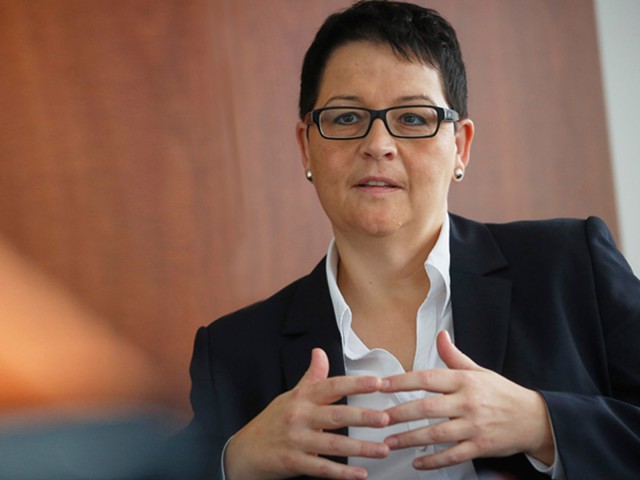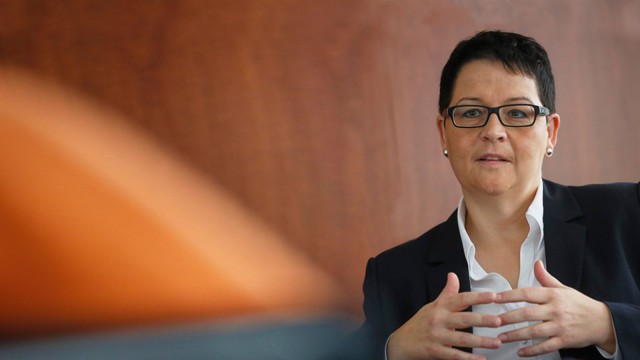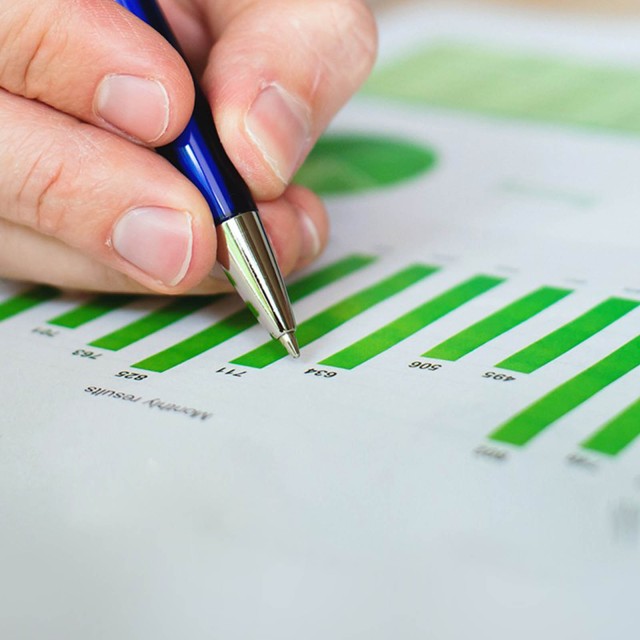December 2018
Sustainability Reports: Interview with EDEKA Südwest
What sustainability strategy does the head of the department follow?


EDEKA Südwest has published a detailed sustainability report. What prompted this?
Michaela Meyer: The sustainability report we published this year is the first report according to the Global Reporting Initiative (GRI)’s G4 Guidelines. Since 2012, we have been working hard on the aspects that make up sustainability and developing measures and initiatives in order to be a frontrunner here. In this report, we want to show how we have evolved in this time and what we have planned for the next few years.
You are following the internationally recognized Guidelines of the Global Reporting Initiative (GRI). These guidelines are incredibly expansive, so why did you choose them?
Michaela Meyer: Firstly, to be comparable and to give our customers an understanding, but secondly also to be able to make comparisons ourselves. Moreover, this standard is a good aid to communication in this extensive topic.
The issue of sustainability is also associated with costs. Why have you nevertheless accepted the, at first glance, considerable expense?
Michaela Meyer: Sustainability is changing business. In business, one thing counts above all: credibility. But credibility requires honesty. EDEKA Südwest is a business. A commitment to sustainability has one clear objective for us: ensuring success in the long term while preserving an environment for subsequent generations that is worth living in. Our customers’ trust in our actions is essential to this.
Our study shows that a company’s focus on sustainability can unlock significant savings potential, e.g. in energy consumption. Have you had similar experiences?
Michaela Meyer: We have a great deal of potential as regards energy, as our stores need lots of energy for light and refrigeration. We are gradually introducing an energy management system there, which is helping us identify and utilize this potential. In logistics, for example, we are using a telematics system in our trucks that analyzes and helps to optimize the driver’s driving. For example, we reduced our diesel consumption by a total of 5.7% from 2010 to 2015.
Our study also makes it clear that specific targets are increasingly being set for individual key figures. How important do you think measurable indicators are for successfully establishing the issue of sustainability within the company?
Michaela Meyer: Very important. It is only when I set myself targets that I can pursue them, but above all measure myself by them.
In retail in particular, we are seeing more and more product labels like the WWF panda, the MSC label or the symbol for organic products. Has customers’ awareness of sustainable products changed in recent years?
Michaela Meyer: Customers are becoming increasingly aware of sustainability. The issue is also present in the media. However, the various labels are hard for end consumers to comprehend, especially as there are so many. But the WWF panda is particularly well recognized and associated with sustainability.
As the title of our study suggests, sustainability is about much more than just environmental protection. It is about social aspects and especially employees as the driving force of a company’s success. What contribution can sustainability make to retaining employees within a company in the long term?
Michaela Meyer: When we contemplated our pillars of sustainability, we very quickly realized that we wanted to give our employees their own pillar. For us, our employees are our biggest asset. As one of the biggest employers and trainers in the southwest of the country, we are aware of our responsibility to our employees. In order to meet this responsibility, EDEKA Südwest offers its employees a broad range of internal and external events and campaigns, such as the annual two-day anniversary parties. The shared focus of the measures is to create fair conditions, prioritize employees’ wellbeing, promote intercommunication and safeguard the very high quality of education and training.
Does this offer advantages when recruiting young employees?
Michaela Meyer: Sustainability is a very important element here. Young people nowadays have a very clear idea of what they expect from their future employer, and sustainable factors play a big role. This definitely includes the compatibility of work and family life. Young people want to know now what will happen later, for example when they want to start a family. EDEKA Südwest is active with various measures in this area and has been certified according to the “berufundfamilie” (work and family) audit since 2013.
Coming from the other direction, where do you see the biggest risks for companies that have not yet included the issue of sustainability on their agenda?
Michaela Meyer: If I, as a company, had not yet thought about how to tackle the various challenges of sustainable business, I would be worried about my and my company’s future. In my view, a company can only be successful in the long term if it reconciles economic, ecological and social criteria.
Among other things, our study looks at the role of suppliers. What role do your suppliers play for you and how does the cooperation work?
Michaela Meyer: We have long-standing partnerships with our suppliers. Especially with regard to our own brand, “Unsere Heimat – echt und gut,” these are suppliers with which we have been cooperating closely for decades and with which we have also grown. We regularly discuss our expectations and objectives and thus maintain a fair and reliable partnership.
To conclude, let’s take a quick look forward. What measures are you planning to further raise your profile as a sustainable company?
In our sustainability report, we have identified eight challenges, from which we have derived 16 targets to be achieved by 2025. Of course, we also want to tackle new potential challenges, should they arise. But you can read this for yourself at www.zukunftleben.de (GER) .

